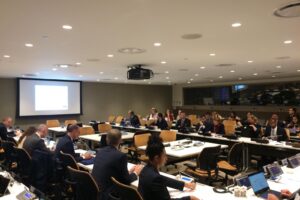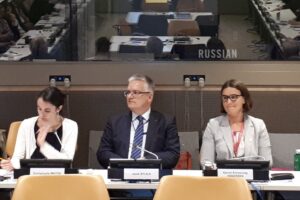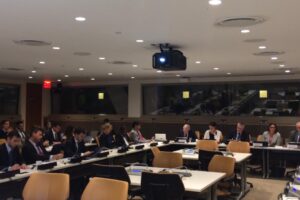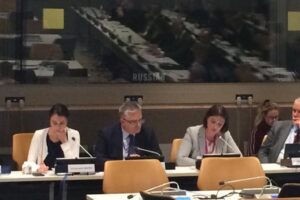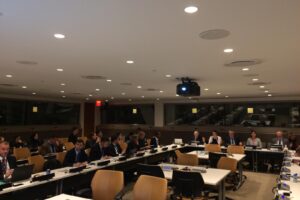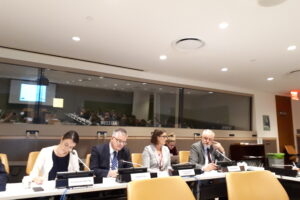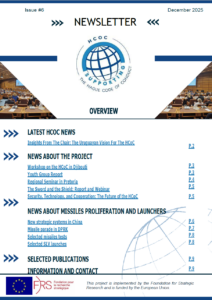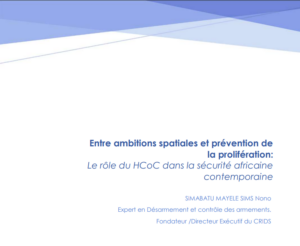Side event on HCoC in the margins of the UNGA in New York
9 October 2019
On 9 October 2019, FRS organised a side event on the Hague Code of Conduct and Ballistic Missile Non-Proliferation in the margins of the 74th session of the United Nations General Assembly in New York, and on behalf of the European Union.
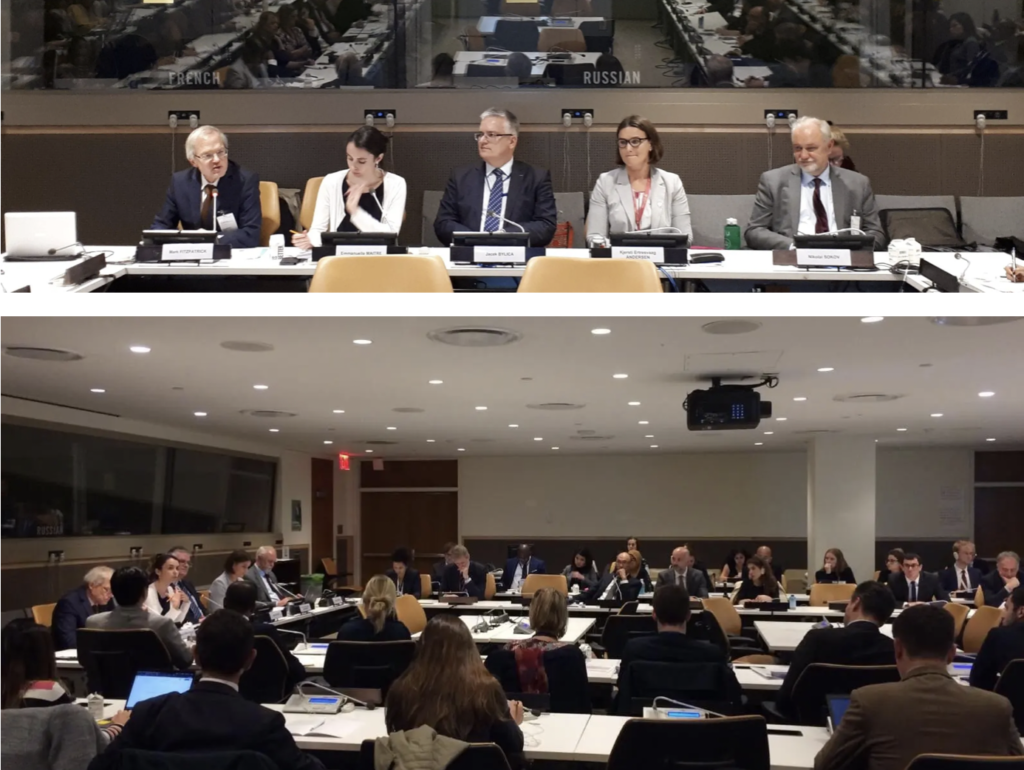
AGENDA
INTRODUCTION & WELCOMING REMARKS
- Amb. Jacek BYLICA, Special Envoy for Disarmament and Non-Proliferation, European External Action Service (EEAS)
EXISTING & POSSIBLE RISK REDUCTION INITIATIVES IN THE FIELD OF MISSILES
MODERATOR:
- Emmanuelle MAITRE, Research Fellow, FRS
PRESENTERS:
-
Amb. Kjersti Ertresvaag ANDERSEN, Ambassador of Norway to Austria, HCoC Chair, Ministry of Foreign Affairs, Norway
-
Mr Mark FITZPATRICK, Associate Fellow, International Institute for Strategic Studies (IISS)
-
Dr Nikolai SOKOV, Senior Fellow, Vienna Center for Disarmament and Nonproliferation (VCDNP)
